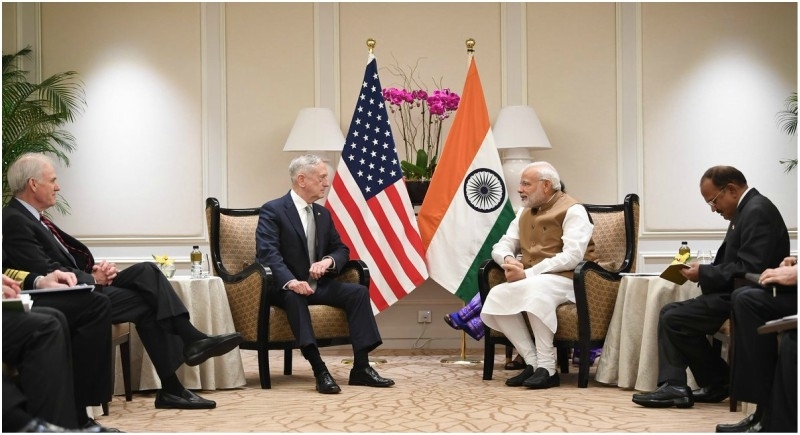India, US vows to continue their strong bilateral strategic partnership
Washington, June 4: Strengthened ‘Diplomacy’ of PM Modi-led government has made India the most strategic country which is now ruling others in various sectors including trade, economy and mainly in South China Sea and Pacific region. However, India’s growing importance has led Pentagon to replace the name of US Pacific Command by US-Indo Pacific Command.

Three days after a massive development, Indian Prime Minister Narendra Modi and US Defence Secretary Jim Mattis met on Saturday last week in Singapore. During the meeting, the two leaders discussed the importance of the US-India relationship.
Giving up the information in detail about the meeting of PM Modi and Jim Mattis, Pentagon secretary Captain Jeff Davis in a press statement said the two leaders discussed the importance of the US-India relationship. He said, “They also discussed the role of both nations in cooperating to uphold international laws and principles, and to maintain a free and open Indo-Pacific.”
He said the two leaders pledged to continue the strong US-India strategic partnership and affirmed their commitment to maintaining peace, stability and prosperity in the region.
Interestingly, Jim Mattis and PM Modi held a closed-door meeting on the sidelines of the International Institute for Strategic Studies' 17th Asia Security Summit, also known as the Shangri-La Dialogue in Singapore.
BACKGROUND:
The US Military command for Asia and the Pacific region on Wednesday last week received a new name ‘US-Indo Pacific Command’. Speaking during a change of guard ceremony in Pearl Harbor, US Defence Secretary Jim Mattis attributed the renaming to growing connectivity between the Indian and Pacific Oceans. He said, “Relationships with our Pacific and Indian Ocean allies and partners have proven critical to maintaining regional stability.”
Earlier, the Trump administration adopted the term “Indo-Pacific” last year during the president’s visit to the region, which was previously mostly referred to as the Asia-Pacific.